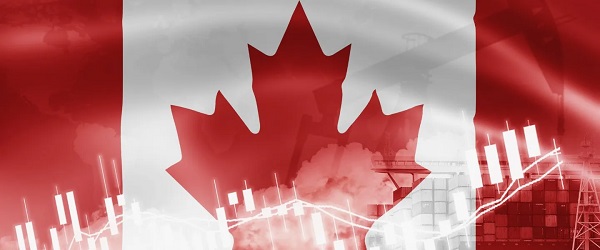Business
‘Experts’ Warned Free Markets Would Ruin Argentina — Looks Like They Were Dead Wrong


From the Daily Caller News Foundation
The current state of Argentina’s economy is a far cry from what “experts” predicted when they warned that President Javier Milei’s pro-free market leadership would devastate the country.
The chainsaw-wielding libertarian rose to power on promises to slash government spending, implement free-market policies and lift strict currency controls to rescue a nation crippled by inflation, debt and entrenched poverty. Though the pundit class warned that Milei’s policies would spark an economic collapse, the results so far have been a rebuke to those warnings.
Just days before the November 2023 presidential election, 108 economists from around the world signed an open letter claiming that Milei’s “simple solutions” were “likely to cause more devastation in the real world in the short run, while severely reducing policy space in the long run.”
“His policies are poorly thought through. Far from building a consensus, he would struggle to govern,” The Economist’s editorial board wrote in a September 2023 piece describing “Javier Milei’s dangerous allure.”
Well over a year into Milei’s presidency, Argentina is showing its strongest economic performance in years. The country’s gross domestic product (GDP) jumped 7.7% in April compared to the same month in 2024, far exceeding expectations.
The GDP is expected to rise by 5.2% in 2025, compared to declines of 1.3% in 2024 and 1.9% in 2023, according to the Organization for Economic Cooperation and Development (OECD).
Inflation, a long-standing hallmark of Argentina’s economic dysfunction, dropped to 1.5% between April and May, reaching a five-year low. Annual inflation has plunged from 160.9% in November 2023 — just before Milei took office — to 43.5% in May.
Meanwhile, poverty rates have also declined sharply, falling from 52.9% in the first half of 2024 to 38.1% in the second half of the year.
Argentina’s rental housing supply also increased by 212% between December 2023 and June 2024, after Milei repealed the country’s rent control laws, according to the Cato Institute.
“Against the background of a difficult legacy of macroeconomic imbalances, Argentina has embarked on an ambitious reform process, starting with an unprecedented upfront fiscal adjustment. Reforms have started to pay off. Inflation has receded and the economy is set for a strong recovery,” the OECD noted in its new analysis of the Argentinian economy. “Maintaining the reform momentum will be key to restore confidence, boost investment and productivity growth.”
Milei — a self-described anarcho-capitalist — has been an ardent supporter of President Donald Trump’s efforts to downsize the U.S. government, including the Department of Government Efficiency’s (DOGE) push to cut spending.
“I come from a country that bought all of those stupid ideas that went from being one of the most affluent countries in the world to one to one of the [poorest],” Milei said in a speech at the Conservative Political Action Conference in 2024. “If you don’t fight for your freedom, they will drag you into misery … Don’t surrender.”
Business
Carney government risks fiscal crisis of its own making

From the Fraser Institute
By Jake Fuss and Grady Munro
In his recent pre-budget speech in Ottawa, Prime Minister Mark Carney repeated his pledge to make “generational investments” in his government’s first budget on Nov. 4. Of course, “investments” means spending, and the government is poised to run a large deficit and add to the mountain of federal debt. Also in his speech, the prime minister said he “will always be straight about the challenges we have to face and the choices that we must make.” Yet he makes no mention of the risks associated with continued deficit-spending and a ballooning federal debt.
Meanwhile, according to a recent article co-authored by Kevin Page, former Parliamentary Budget Officer (PBO), the Carney government should continue to run budget deficits to benefit “current and future generations” of Canadians. And Page (and co-authors) push back against warnings from the current PBO that the government’s finances are unsustainable—noting that “there is no fiscal crisis.”
And he’s right. Canada does not currently face a fiscal crisis. But the Carney government seems determined to create one.
First, some quick fiscal history. The federal government has run a deficit (i.e. spent more money than it collects in revenue) every year since 2007/08, spanning both Conservative and Liberal governments, meaning it’s been nearly two decades since the government balanced its budget. And over the last 10 years (i.e. the Trudeau era) there’s been no meaningful effort to work towards budget balance.
Of course, deficits produce debt. From 2014/15 to 2024/25, total federal debt has doubled from $1.1 trillion to a projected $2.2 trillion, and as a share of the economy, increased from 53.0 per cent to a projected 70.0 per cent.
Simply put, when government debt grows faster than the economy, government finances are on an unsustainable path that may lead to a fiscal crisis. The last time Canada faced a fiscal crisis was the early 1990s when total federal debt represented more than 80 per cent of the economy and the federal government spent roughly one in every three dollars of revenue collected each year on debt interest. In response to Ottawa’s inability to control its finances, lenders increased interest rates because lending money to Ottawa became a riskier proposition. Things became so dire that the Wall Street Journal penned an editorial arguing Canada had become “an honorary member of the Third World in the unmanageability of its debt problem.”
While Ottawa’s finances today aren’t as precarious as they were back then, a decade of record-breaking spending and debt accumulation has brought us closer to a fiscal crisis.
The Carney government faces significant challenges including the spectre of more U.S. tariffs, a stagnant economy and the need to significantly ramp up Canada’s military spending. Again, despite promising a “very different approach” to fiscal policy than the previous government, the prime minister’s recent speech reinforced expectations that the government will significantly increase spending and borrowing this year and in years to come. Indeed, the PBO recently projected that total government debt will rise to 79.2 per cent of the economy by 2028/29.
When defending this status quo approach, the government and its defenders essentially argue that we can keep running larger deficits because Ottawa’s finances are not in bad shape compared to the past or compared to other developed countries (which is actually not true), and that Canada enjoys a strong credit rating that helps keep borrowing costs down.
But in reality, they also effectively argue that we should continue down a path to a fiscal crisis simply because we haven’t reached the end yet. This is reckless, to say the least. The closer we get to a fiscal crisis the harder (and costlier to Canadians) it will be to avoid it.
To get Ottawa’s finances back in order before it’s too late, the government should reduce spending, shrink the deficit and slow the amount of debt accumulation. Unfortunately, the Carney government appears to be running in the opposite direction.
Business
Quebecers want feds to focus on illegal gun smuggling not gun confiscation

The Canadian Taxpayers Federation released new Leger polling showing that half of Quebecers say the most effective way to reduce gun crime is to crack down on illegal gun smuggling from the United States, not a federal gun ban and confiscation.
“Law enforcement experts say the best way to make Canada safer is to stop illegal gun smuggling and Quebecers say exactly the same thing,” said Nicolas Gagnon, CTF Quebec Director. “It makes no sense to pour hundreds of millions into a confiscation that only takes guns from lawfully licensed gun owners.”
In 2020, the federal government launched its policy to confiscate thousands of so-called “assault-style” firearms from licensed gun owners. Ottawa recently announced a pilot project in Cape Breton to start taking firearms from individual owners.
The Leger poll asked Quebecers what they think is the most effective way to reduce gun crime. Results of the poll show:
- 51 per cent say introducing tougher measures to stop the illegal smuggling of guns into Canada from the United States
- 37 per cent say banning the sale and ownership of many different makes and models of guns along with a government buyback program
- Six per cent say neither of these options
- Seven per cent do not know
The results of the polls arrived as recorded remarks from Public Safety Minister Gary Anandasangaree made headlines in September.
In a leaked audio recording, the minister suggested the confiscation program is being pushed in part because of voters in Quebec, while also expressing doubt that local police services have the resources to enforce it.
Police organizations have long warned Ottawa’s confiscation program is misguided. The RCMP union says it “diverts extremely important personnel, resources, and funding away from addressing the more immediate and growing threat of criminal use of illegal firearms.”
The program was first estimated to cost $200 million. Just providing compensation for the banned guns, not including administrative costs, could cost up to $756 million, according to the Parliamentary Budget Officer.
Premiers of Alberta and Saskatchewan have both publicly said that they would not cooperate with Ottawa’s gun ban. Premier François Legault has stayed silent on this issue.
“Quebecers have been clear: the real problem is illegal gun smuggling, not law-abiding firearms owners,” said Gagnon. “The police have also made it clear the gun confiscation will waste money that could be used to stop criminals from committing gun crimes.
“Legault needs to stand up for Quebec taxpayers and refuse to help implement Ottawa’s costly and ineffective confiscation scheme. The federal government needs to drop this plan and focus its resources on intercepting illegal guns at the border: that’s how you actually make communities safer.”
-

 Alberta10 hours ago
Alberta10 hours agoBusting five myths about the Alberta oil sands
-

 Business14 hours ago
Business14 hours agoQuebecers want feds to focus on illegal gun smuggling not gun confiscation
-

 Health13 hours ago
Health13 hours agoNew report warns WHO health rules erode Canada’s democracy and Charter rights
-

 Energy12 hours ago
Energy12 hours agoMinus Forty and the Myth of Easy Energy
-

 Fraser Institute11 hours ago
Fraser Institute11 hours agoMétis will now get piece of ever-expanding payout pie
-

 Business2 days ago
Business2 days agoLiberals backtrack on bill banning large cash gifts, allowing police to search Canadians’ mail
-

 DEI2 days ago
DEI2 days agoConservative push to end Canada’s ‘anti-merit’ DEI programs receives support
-

 Alberta2 days ago
Alberta2 days agoPremier Smith moves to protect Alberta in International Agreements









